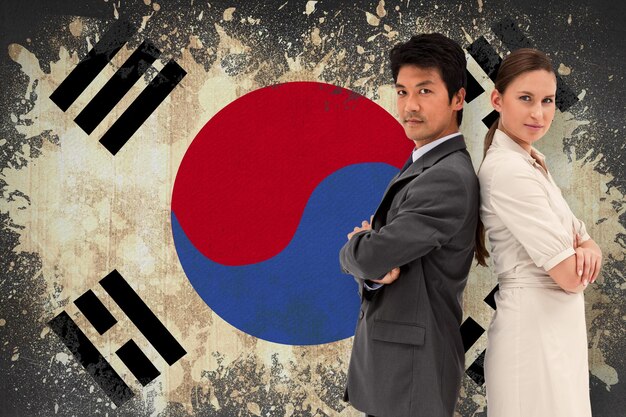Korean Drama Remakes: Predicting the Top 5 US Adaptations

Explore the rising trend of Korean drama remakes in the US, anticipating the next five adaptations poised for success and examining the cultural exchange and adaptation challenges involved.
The popularity of Korean dramas, or K-dramas, has exploded globally, and the US is no exception. With their compelling storylines, high production values, and unique cultural perspectives, K-dramas have found a dedicated audience eager for more. This has led to an interesting trend: the adaptation of successful K-dramas for American television. This article will delve into the phenomenon of Korean drama remakes in the US: Predicting the Next 5 Hit Adaptations, exploring what makes these adaptations work and which series are most likely to be the next big hits.
The Allure of Korean Dramas: Why Remakes are Trending
Korean dramas have carved out a significant niche in the global entertainment industry, with themes and stories that resonate with a broad audience alongside production values that compete with the best Western content. The emotional depth, complex characters, and unpredictable plot twists are a solid base for adaptations.
The trend of remaking K-dramas in the US is not just about capitalizing on pre-existing storylines; it represents a cultural exchange. American producers are attracted to the fresh perspectives and creative narratives that K-dramas offer, providing a departure from the many familiar tropes.
Cultural Nuances and Adaptation Challenges
Adapting a K-drama for an American audience involves more than just translating the script; it requires careful consideration of cultural differences. What works in a Korean context may not resonate in the same way in the US.
- Family Dynamics: K-dramas often emphasize family relationships and filial piety, which may need adjustments for American viewers accustomed to more individualistic portrayals.
- Social Issues: Issues like workplace hierarchy or educational pressures need to be rethought to reflect American social structures.
- Romantic Conventions: The delicate and often chaste romances in K-dramas differ from more explicit depictions on American TV.
Adapting to American tastes successfully involves addressing these nuances. Producers must strike a balance between staying true to the essence of the original while making it relatable and accessible to a new audience. The goal is to retain the characteristics and plot lines that initially made the K-drama appealing, ensuring that the remake is more than just a superficial copy.
In conclusion, the allure of Korean dramas lies in their unique storytelling and fresh perspective, which entice US producers to remake them. However, overcoming adaptation barriers, mainly cultural nuances, is critical to creating remakes that resonate with American audiences while paying homage to the original material.
Predicting the Next 5 Hit K-Drama Adaptations
With the growing popularity of K-drama remakes, the question on everyone’s mind is: which series are most likely to be adapted next and achieve mainstream success in the US? After a thorough evaluation of trends in the market using objective tools like audience demand, media coverage and production company interests, here are five K-dramas that have high potential for successful American adaptations.
These predictions consider not only the popularity and critical acclaim of the original K-dramas but also their potential for resonating with American audiences after culturally sensitive modifications.

1. Signal
Why it could work: “Signal” combines elements of crime procedural and supernatural thriller, making it appealing to a broad audience. The premise, about solving crimes across time, could easily be adapted to the US setting. In the original, a present-day profiler communicates with a detective from the past to solve cold cases.
A U.S. adaptation could explore similar themes of justice and redemption, with American actors and settings that resonate with local viewers.
2. Stranger (Secret Forest)
Why it could work: “Stranger” is a compelling crime drama known for its complex plot and excellent character development. It follows a prosecutor who lacks empathy and a passionate detective as they unravel a web of corruption.
The story’s emphasis on morality and justice makes it universally appealing. An American version could explore similar themes within the US legal system, potentially commenting on the current state of law enforcement and political corruption.
3. Misaeng: Incomplete Life
Why it could work: While it lacks the thriller elements of the others on this list, “Misaeng” offers a realistic look at the challenges of corporate life. The story follows a young man entering the corporate world without the usual credentials is a story that will find its public in the US.
The show’s themes of perseverance, mentorship, and overcoming adversity are relatable to audiences everywhere. An American remake could provide a commentary on the competitiveness, and often ruthless, business world.
4. Crash Landing on You
Why it could work: This series is a mix of romance, comedy, and political intrigue. The story revolves around a South Korean heiress who crash-lands in North Korea and falls in love with an army officer.
Adapting it to the US context could involve exploring the love story between someone of high social standing in the US falling for a person forced to live a life in the shadows somewhere in the world, providing a lot of entertainment.
5. Kingdom
Why it could work: As a historical horror series set in medieval Korea, “Kingdom” offers a unique blend of genres and themes. The story centers on a prince fighting against a plague of zombies.
An American adaptation could reimagine the story in a different historical period or setting, exploring themes of survival, political intrigue, and the human spirit in the face of seemingly insurmountable odds.
Based on their compelling story lines, ability to connect with multiple demographics, and cultural nuances, here are the top 5 Korean dramas that can be hit adaptations in the US. This is based on recent viewing trends and the rising demand for more culturally diverse remakes in the United States as well.
The Importance of Cultural Sensitivity in Remakes
Cultural sensitivity is vital when remaking Korean dramas for American audiences. This involves understanding and respecting the cultural values, norms, and traditions that are unique to the original series and adapting them appropriately for a new context.
This delicate balance of cultural sensitivity and adaptation has become increasingly recognized as a key element in determining the quality of remakes, influencing their acceptance and success more than ever.
Avoiding Cultural Appropriation
One of the main things is to avoid cultural appropriation. Cultural appropriation happens when elements from a minority culture are used without understanding or respecting their original meaning.
- Consult with Cultural Advisors: Consulting Asian American cultural advisors can provide insights into cultural nuances and ensure that the remake is respectful and authentic.
- Accurate Representation: Ensuring that Asian characters and stories are portrayed accurately and respectfully. Avoid stereotypes and caricatures.
- Giving Credit: Acknowledging and celebrating the Korean origins of the series.
Localization Strategies
Localization involves adapting the content to the specific cultural context of the target, ensuring that it is relevant and relatable to the public with different cultural sensitivities. Some strategies include:
By focusing on these strategies, producers can create remakes that are both respectful and popular, making a contribution to cross-cultural exchange.
In conclusion, cultural sensitivity goes beyond just avoiding missteps; it helps create remakes that are valuable and authentic. Making sure Asian stories are told with respect honors the original work and connects with a wide range of people.
Success Stories: K-Drama Remakes That Made It
While many K-drama remakes have been attempted, only a few have achieved widespread critical claim in the US. Examining these success stories provides valuable insights into what works and what audiences connect with.
Adaptations that celebrate the original with carefully woven cultural nuances have done exceptionally well, which is why some remakes achieve lasting success, leaving audiences eagerly anticipating future cross-cultural adaptations.

“The Good Doctor”
What made it work: “The Good Doctor,” a remake of the South Korean series of the same name, is about a young surgeon with Savant syndrome who is hired at a prominent hospital. It struck a chord for its sensitive portrayal of disability and universal themes of empathy and acceptance.
The American remake maintained the central plot and character dynamics but also adjusted elements to fit the US medical system and cultural context.
“Suits”
What Made It Work: Although not directly a remake, the K-drama “Suits” was based on the American series of the same name. However, its popularity in South Korea led to the original being re-introduced. The success of “Suits” shows flexibility in adapting stories and themes and its cultural relevance.
The American version of “Suits” has been globally known, the South Korean version has carved out its niche market, showing that successful remakes create new interpretations that attract and engage viewers worldwide.
Lessons Learned
Several essential lessons are clear from the success stories, which highlight the path to creating successful K-drama remakes that resonate with American audiences. These successful adaptations show that sticking to the spirit of the original while making intelligent cultural changes is the way to success.
In summary, these success stories highlight the importance of cultural nuances and adaptation to local audiences. Remakes can be very successful if they maintain their original essence, and honor Asian origins while finding their audience, attracting viewers and setting the stage for more cross-cultural adaptations.
Navigating the Production Challenges of K-Drama Remakes
Producing K-drama remakes in the US comes with a unique set of challenges. These challenges range from securing remake rights to balancing creative integrity with commercial viability.
The ability to overcome production challenges makes sure the adaptation process is seamless, resulting in engaging content for audiences and respecting the original work.
Securing Remake Rights
Obtaining the rights to remake a K-drama involves negotiating with the original production company or rights holder. This process can be complicated, and it also depends on the popularity and possible success of the series.
- Early Engagement: Engaging early with the rights holders is key to securing the remake rights before other competitors show interest.
- Negotiation Skills: The right lawyers will facilitate a discussion that works for both rights holders and US production companies.
- Fair Compensation: Offering competitive financial terms that reflect the original series’ true worth demonstrates serious intentions.
Creative Differences and Collaboration
Differences in creative vision can arise between the US production team and the original creators. Negotiating these differences is key to ensuring respectful collaboration.
By navigating these production challenges effectively, producers can ensure that K-drama remakes in the US are both viable and artistically strong. Good collaboration and cultural sensitivity lead to successful adaptations that attract a wide audience, therefore enriching the television environment.
The Future of K-Drama Adaptations
The future of K-drama adaptations in the US looks promising. As the global popularity of Korean content continues to grow, so does the demand for adaptations that cater to local audiences.
The future of K-drama adaptations is likely to be defined by innovation, collaboration, and dedication to creating shows that appeal to audiences globally while maintaining respect for the original source material.
Emerging Trends
Several trends are shaping the landscape of K-drama adaptations.
- Diversity in Genres: A broader range of K-dramas will be adapted into American series.
- Streaming Platforms: More streaming services will be developing and showcasing the adaptations.
- Co-Production: Increased collaborations between Korean and American production companies will happen, bringing different perspectives and talent.
Impact on the Entertainment Industry
K-drama adaptations have the potential to significantly impact the entertainment industry in both the US and Korea. These adaptations can create opportunities for cross-cultural collaboration, introduce new talent to wider audiences, and bring different perspectives to mainstream storytelling.
By embracing these strategies, the entertainment industry can harness the full potential of K-drama adaptations, enriching the global media environment and building a framework for mutual understanding and creative exchange.
| Key Point | Brief Description |
|---|---|
| 💡Cultural Sensitivity | Adapting K-dramas requires understanding and respecting original cultural values. |
| 🎬Adaptation Challenges | Balancing creative integrity with commercial viability. |
| 🌟Success Factors | Maintaining essence, honoring origins, and intelligent cultural adaptations. |
| 🌏 Future Trends | More streaming adaptations and collaborations between Korean and American companies. |
Frequently Asked Questions
K-dramas have unique storylines and themes that have attracted a international fanbase that have led US producers to capitalize on the demand for their content.
One major challenge is understanding and adapting them to resonate with American views while keeping respect for the original content. This requires collaboration so the adaptation can maintain its characteristics.
It is crucial. By integrating cultural sensitivity, the remakes are able to find a wide range of people and properly recognize the original.
“The Good Doctor” is a perfect example of remakes that stay true to the original spirit. It is relatable to audiences.
The future of K-drama is constantly showing promising changes, because globalization makes shows more innovative and culturally diversified.
Conclusion
In conclusion, the trend of Korean drama remakes in the US: Predicting the Next 5 Hit Adaptations represents a dynamic area in the entertainment industry. By carefully balancing creative adaptation and cultural respect, these remakes can offer fresh perspectives and engaging stories. These adaptations can pave the way for a richer, globalized television landscape.





